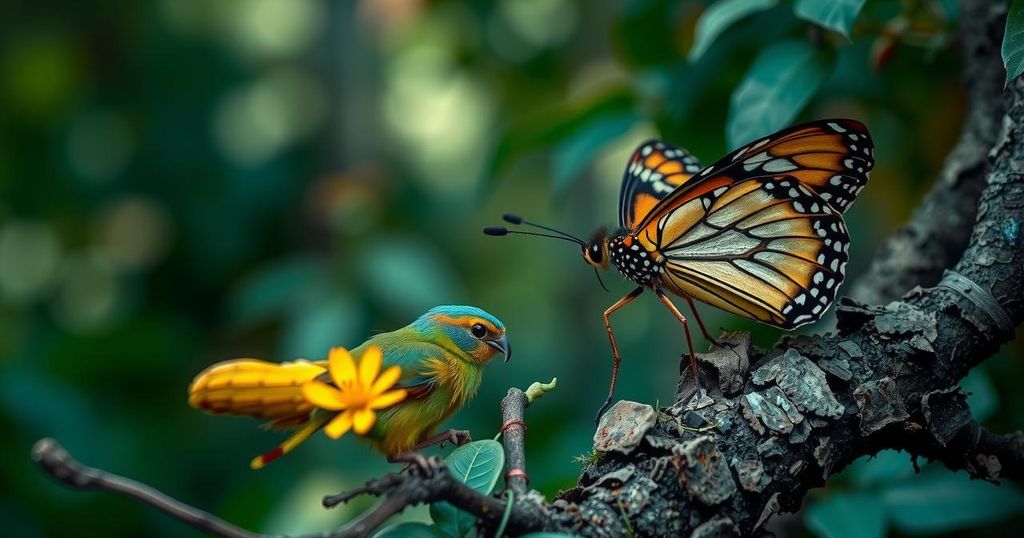COP16 is taking place in Cali, Colombia, where global leaders review progress in protecting biodiversity. With alarming rates of species extinction and habitat degradation, this summit is a crucial opportunity to hold nations accountable for their environmental commitments made at COP15. Biodiversity, which encompasses the variety of life on Earth, is essential for human survival. The degradation of ecosystems poses significant risks, and COP16 aims to devise strategies to enhance conservation efforts and increase financial support for biodiversity initiatives.
The 16th Conference of the Parties (COP16) is convening in Cali, Colombia, bringing together leaders and representatives from nearly every nation to evaluate global efforts in safeguarding biodiversity. This gathering occurs amid alarming declines in plant and animal populations, as well as significant degradation of critical habitats such as forests, rivers, and oceans. Following a landmark agreement at COP15 in December 2022, in which nearly 200 countries adopted an ambitious plan to halt the loss of nature by the decade’s end, COP16 serves as a crucial platform for holding countries accountable for their commitments to protect the natural environment. Biodiversity encompasses the variety of all life forms on Earth, including animals, plants, fungi, and microorganisms such as bacteria. This diversity is essential for human survival, providing fundamental needs such as fresh water, clean air, food, and medicine. Healthy ecosystems rely on the interdependence of various species. For instance, plants play a pivotal role in enhancing our environment by purifying air, mitigating temperature increases, and acting as shields against climate change. Various natural habitats, such as mangrove ecosystems and coral reefs, help counteract erosion caused by rising sea levels, while urban trees like the London plane and tulip tree excel in sequestering carbon dioxide and filtering pollutants from the air. Currently, species extinction rates are alarmingly high, occurring 100 to 1,000 times faster than natural historical rates, leading scientists to suggest that human activities might be precipitating a sixth mass extinction. The International Union for Conservation of Nature (IUCN) has documented over 163,000 species, with approximately 45,300 categorized as threatened. The UN’s Intergovernmental Science-Policy Platform on Biodiversity and Ecosystem Services (IPBES) estimates that at least one million plant and animal species are at risk, primarily due to human activities. The threats to biodiversity are multifaceted, with reports highlighting the harmful consequences of overharvesting, deforestation, hunting, and overfishing. From 2001 to 2021, the planet lost 437 million hectares of forest, including a significant proportion of primary forests, crucial for biodiversity preservation. Regions such as Latin America have witnessed dramatic declines in animal populations, with a reported 95% reduction largely attributed to habitat destruction and exploitation. The UK is noted for being one of Europe’s most nature-depleted countries, residing in the bottom 10% globally. Furthermore, climate change exacerbates the challenges faced by various species, necessitating urgent action to limit global temperature increases to 1.5°C above preindustrial levels to avert further biodiversity losses. In December 2022, at COP15, countries reached a pivotal agreement to safeguard 30% of the Earth’s land and sea territories by 2030. The Kunming-Montreal Global Biodiversity Framework aims to halt and reverse biodiversity loss by 2030, establishing a vision for humanity to cohabit harmoniously with nature by 2050. The framework outlines four key objectives: enhanced conservation of ecosystems and species, sustainable resource utilization, equitable sharing of natural resources, and increased financial support for biodiversity initiatives. Specific targets for 2030 include mechanisms to finance conservation in biodiversity hotspots, with a commitment from governments and private entities to contribute at least $200 billion annually by 2030. Additionally, wealthier nations pledged to increase financial assistance to developing countries for biodiversity efforts to $30 billion per year by this timeline. COP16, spanning from October 21 to November 1, serves as a prominent forum for assessing national commitments towards biodiversity protection. Recent evaluations suggest that many countries may fail to meet the deadlines for submitting updated national action plans for biodiversity preservation. Key discussions are anticipated to address the ambition behind meeting specific targets, the financial backing for biodiversity initiatives in less developed nations, and the equitable sharing of profits arising from genetic resources. The Colombian environment minister, Susana Muhamad, emphasizes the theme “Peace with Nature,” urging a reassessment of humanity’s relationship with the natural world. Notable leaders, including Brazilian President Luiz Inacio Lula da Silva and Mexico’s incoming President Claudia Sheinbaum, are expected to participate in the proceedings.
The Conference of the Parties (COP) is a significant assembly of nations dedicated to addressing climate change and biodiversity. COP16 convenes shortly after COP15 in December 2022, where global leaders pledged to enact measures to protect biodiversity worldwide. This summit addresses critical environmental issues including habitat degradation and the alarming trends of species extinction that have escalated due to human activity. As biodiversity plays a vital role in sustaining ecosystems and human life, the need for international cooperation and accountability in conservation efforts is paramount.
In summary, COP16 represents a pivotal opportunity for global leaders to reaffirm their commitments toward protecting biodiversity in the face of escalating environmental challenges. With increasing extinction rates and habitat loss driven by human activities, urgent action is necessary to implement the agreements established at previous summits. The ongoing partnerships and financial commitments between nations will be critical to achieving the ambitious objectives set forth in the Kunming-Montreal Global Biodiversity Framework to ensure the longevity of our planet’s ecosystems and species.
Original Source: www.bbc.com






